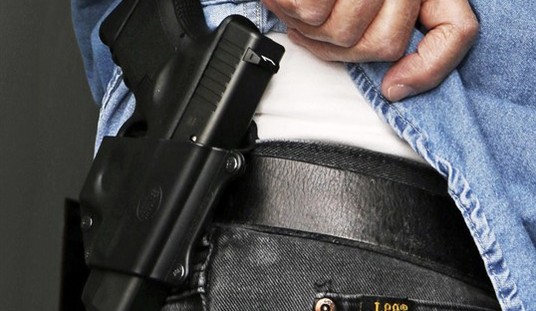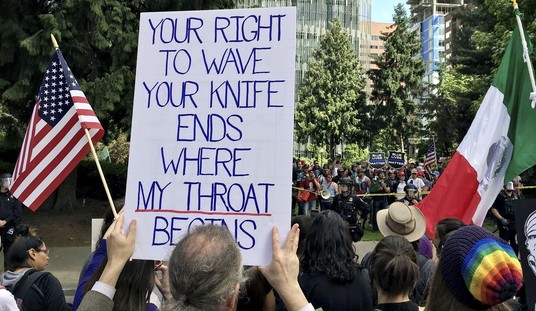Despite ongoing objections from Second Amendment groups and a letter from Rep. Andrew Clyde and more than two dozen other members of Congress urging Attorney General Pam Bondi to recognize congressional intent and stop defending the National Firearms Act's taxes and registration requirements for National Firearms Act items, the DOJ's latest brief in an NFA case offers a full-throated defense of those measures.
The brief, filed in Silencer Shop, et al v. BATFE, not only argues that the Constitution empowers Congress to adopt the challenged NFA requirements and that the $200 tax and registry of who has paid it remain a valid exercise of Congress’s taxing power, but that the tax and registration mandates "comport with the Second Amendment" as well.
... the NFA’s regulation of short-barreled shotguns and rifles, suppressors, and AOWs is “consistent with this Nation’s historical tradition of firearm regulation.” As the Supreme Court has consistently observed, American legislatures have long “prohibited the carrying of ‘dangerous and unusual weapons.’” Laws dating back to theFounding Era targeted, through outright bans or lesser regulation, particularly dangerous weapons that were uniquely susceptible to criminal misuse. Similarly, many states have long regulated the size of firearms. The NFA fits within that historical tradition by targeting particularly dangerous weapons that “could be used readily and efficiently by criminals,” though its requirements are much more modest than the categorical bans of the past. That alone demonstrates that the NFA comports with the Second Amendment.
Gun Owners of America, among others, has objected to the DOJ's continued defense of the NFA, which led to a rebuke of the 2A organization from a DOJ official.
Hey guys! As you’ve previously pointed out, Congress is the issue here, not DOJ. Registration requirements may be a bad idea, but it’s a worse idea to have courts overturn the rule of Congress unilaterally.
— Gates McGavick (@GatesMcgavick) November 22, 2025
You guys know that AG Bondi is a staunch 2A advocate, but that doesn’t… https://t.co/PXkHdXXqVQ pic.twitter.com/3PS2r70Hey
McGavick's argument is an odd one, given that the Supreme Court does have the power to declare laws unconstitutional. And in the case of the NFA's taxation and registration schemes, it's clear that the intent of Congress was to repeal those provisions. The $200 tax has been zeroed out as part of the One Big Beautiful Bill Act, but though the Senate also removed the accompanying requirement that those who pay the tax have to register that payment with the federal government, the Senate parliamentarian objected to that provision, so the registry remains.
The DOJ could have taken the position that, since the registration is actually a registry of all those who've paid the tax, and the tax has no been zeroed out, the registration requirement is moot. It could also, of course, have taken the position that the NFA does violate the Second Amendment, despite what the Court has said in cases like Miller and Heller.
No, it is well within the courts' power to overturn unconstitutional laws (like much of the NFA).
— Kostas Moros (@MorosKostas) November 22, 2025
If your point is that DOJ should not be picking and choosing which laws to defend in court, I can understand that, to an extent. Some laws are obviously unconstitutional and should… https://t.co/P4TYMC4ZHU
Part of the DOJ's problem is that it has previously admitted in the Peterson case that challenges the NFA's restrictions on suppressors that those items are, in fact, protected by the Second Amendment. Still, the DOJ took the position that the $200 tax and registration requirements are only "modest burdens" on the right to keep and bear arms, at least as they apply to those items.
The Supreme Court has never suggested that there are various levels of protection for arms that fall under the Second Amendment's umbrella, so the DOJ's position arguably leaves the door open for similar requirements on all arms protected by the Second Amendment. If the DOJ is going to to defend the National Firearms Act, it might have been better for the agency to argue that NFA items aren't protected at all instead of coming up with a convoluted theory about tiers of protection and what kind of restrictions might be allowed for some arms. That still wouldn't satisfy groups like GOA, FPC, and NRA, but it also wouldn't allow gun control groups and anti-gun polticians to adopt the DOJ's language and apply it to handguns or semi-automatic long guns in the future.
When Rep. Clyde joined me on Bearing Arms Cam & Company to discuss the letter to Bondi, he indicated that if the DOJ didn't fall in line behind Congress's intent he might re-open the letter to gather more signatures before submitting its rebuke into the official congressional record. Clyde says he's also working on an appropriations bill that would remove the registration requirements, which would be fantastic if it comes to pass, but that action in the legislative branch still doesn't mean that the executive branch's hands are tied when it comes to the NFA and its infringements on our right to keep and bear arms.









